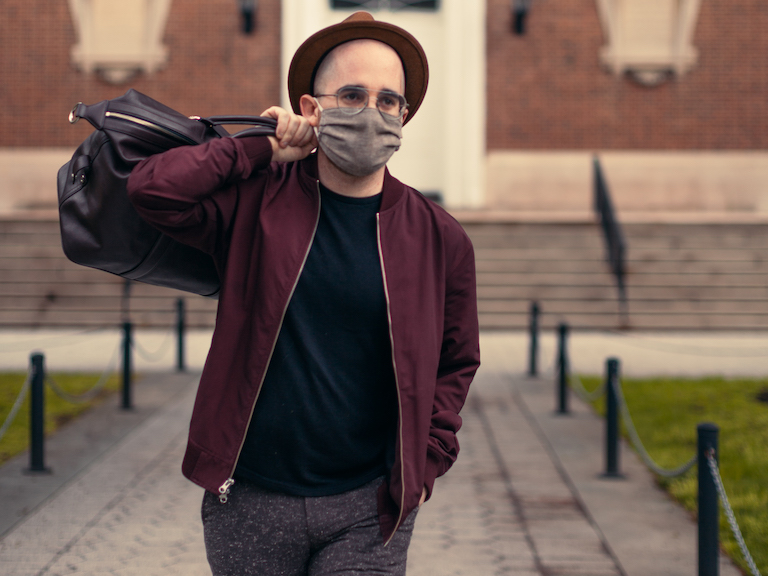 Having meaningful conversations with teenagers is sometimes difficult enough. In the midst of the current pandemic, where Google Meet and Zoom chats have become the norm, it’s even more difficult.
Having meaningful conversations with teenagers is sometimes difficult enough. In the midst of the current pandemic, where Google Meet and Zoom chats have become the norm, it’s even more difficult.
Ian Levy, Ed.D., and students in Manhattan College’s school counseling program have found a non-traditional way to connect: through the rhythms and rhymes of hip-hop.
“The main goal is to allow students to have the space to talk and work through their struggles,” said Kelsy Grim ’21 (M.S.), one of the students in the school counseling program in Manhattan College’s School of Education and Health. “It’s a great way for them to express what they’re going through, especially during the past year.”
The son of musicians turned educators, Levy’s research examines hip-hop based practices in schools as a culturally responsive approach to counseling. He works with students to process difficult thoughts and feelings through the writing, recording and performing of emotionally themed music.
Levy started incorporating hip-hop into his own personal writings during his time as an undergraduate at Queens College, and ultimately made the connection to counseling when he was a graduate student at Columbia University Teachers College, working with Chris Emdin, Ph.D., a leading urban education scholar.
“We talked about moving beyond the talk therapy approach that isn’t responsive,” Levy explained. “I fell in love with hip-hop on a personal level, then charted a blueprint in the counseling discipline.”
Levy notes that there are others who have done this work before, but he is helping launch the first school counseling training program based around hip-hop: EDUG 913: Hip-Hop and School Counseling Praxis.
It will be an elective course within the school counseling program that will prepare school counselors to deploy culturally sustaining interventions like hip-hop lyrics and music.
Grim has been working virtually with a school in Inwood, in upper Manhattan, minutes from the Manhattan College campus. She plans to move to Colorado after completing her graduate degree at Manhattan College, and wants to continue practicing the methods she’s learned in Levy’s courses and put into practice in New York.
“It’s important to give students these outlets that they want and not expect them to follow what always has been,” Grim said. “This has brought us together, even since it’s been virtual. It’s an easy way to get students to open up to you. I can’t say enough good things about the program.”